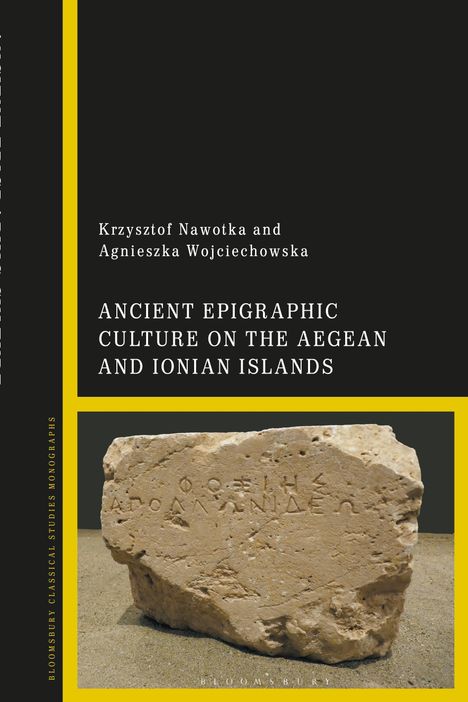Ancient Epigraphic Culture on the Aegean and Ionian Islands, Gebunden
Ancient Epigraphic Culture on the Aegean and Ionian Islands
Sie können den Titel schon jetzt bestellen. Versand an Sie erfolgt gleich nach Verfügbarkeit.
- Herausgeber:
- Krzysztof Nawotka
- Verlag:
- Bloomsbury Academic, 03/2026
- Einband:
- Gebunden
- Sprache:
- Englisch
- ISBN-13:
- 9781350447653
- Artikelnummer:
- 12271119
- Umfang:
- 288 Seiten
- Gewicht:
- 454 g
- Maße:
- 234 x 156 mm
- Stärke:
- 25 mm
- Erscheinungstermin:
- 19.3.2026
- Hinweis
-
Achtung: Artikel ist nicht in deutscher Sprache!
Klappentext
Through a series of case-studies of nine Aegean and Ionian islands, the contributors examine the ancient epigraphic culture of each island's political, social and religious history from the archaic age until late antiquity. These Mediterranean islands - Delos, Thera, Crete, Chis, Samos, Kos, Rhodes, Amorgos and the Ionian islands - were a world in themselves with their own dialects, cults, customs and political structures. Through a careful reading of a range of inscriptions, new interpretations arise concerning our understanding of their constitutional history, economic transformation, relationship with major powers, as well as notions of identity and connectivity.
Inscribing for public display was a feature of Greek civilization that was carried out not only by priests, politicians and the elite, but also by individual citizens. The Greeks developed a plethora of distinct categories of inscriptions, going beyond the standard of epitaphs and dedications to the gods, to include decrees of the people, honorific inscriptions cut into the bases of statues and monuments dedicated to benefactors and athletes. However, the intensity of inscribing varied from one century to the other, and these fluctuations can be represented from a quantative approach as epigraphic curves. The significance of this volume is that it offers an overview of the history of these lesser states, which are not necessarily well documented in literary evidence to the degree comparable with Athens or Sparta.


